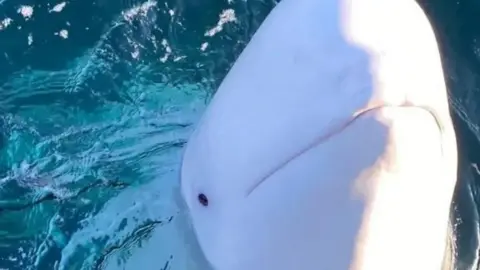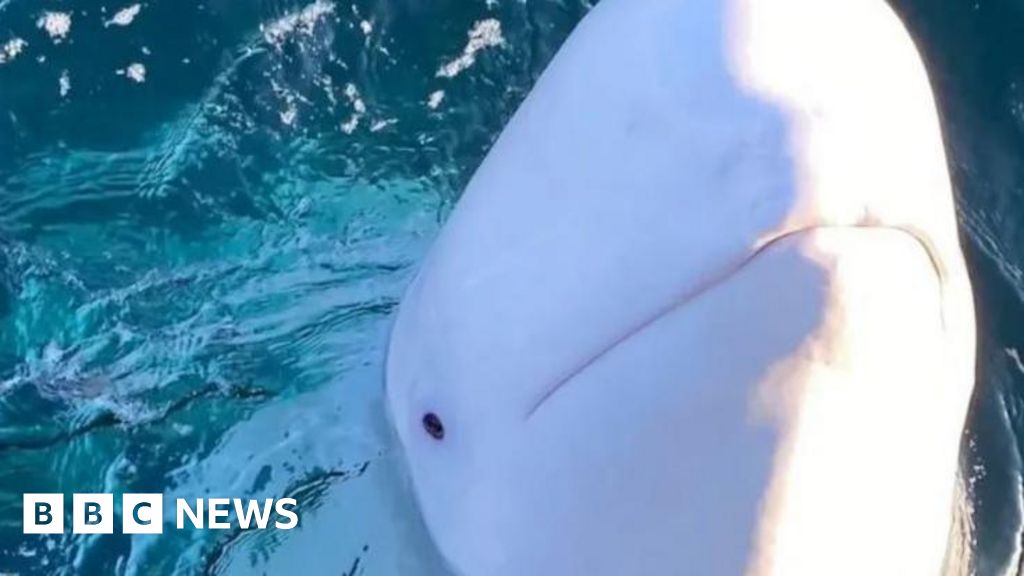 Helene O’Barry
Helene O’BarryA beluga whale suspected of being a Russian spy found dead off the Norwegian coast was shot, animal rights activists have claimed.
The body of the otherwise healthy and relatively young animal – nicknamed Hvaldimir – was found floating in a bay off the country’s south-western coast.
Animal rights groups said the whale was found with bullet wounds and had been shot in a “heinous crime”.
“We will pursue justice for Hvaldimir,” One Whale founder Regina Haug vowed in a statement on social media.
One Whale was founded to track the beluga, which rose to fame after being spotted in Norwegian waters five years ago.
The pale whale was seen with a GoPro camera attached to a harness that read “Equipment of St Petersburg” – sparking speculation that the curious mammal could be engaged in espionage.
It became known locally as Hvaldimir, a pun on the Norwegian word for whale, “hval,” and Russian President Vladimir Putin’s first name.
The Arctic mammal’s body was found floating off the south-western town of Risavika on 1 September and taken to the nearest port for examination.
Noah and One Whale said they had filed a complaint with Norwegian police asking them to open a criminal investigation.
“He had multiple bullet wounds around his body,” Ms Haug from One Whale said via its official Instagram account after viewing the body on Monday.
Photographs published by One Whale on social media appear to show what they say are bullet wounds in Hvaldimir’s bloodied body.
“The injuries on the whale are alarming and of a nature that cannot rule out a criminal act – it is shocking,” said Noah director, Siri Martinsen.
But Marine Mind, the organisation that discovered the body, said there was “nothing to immediately reveal the cause of death”.
“We saw markings but it’s too early to say what the cause of death was,” director Sebastian Strand told reporters.
The body was transported to a nearby branch of the Norwegian Veterinary Institute on Monday for an autopsy.
The report is expected “within three weeks”, a spokeswoman for the institute said.
With an estimated age of about 15, Hvaldimir was not old for a Beluga whale, which can live to 60.
Police told local media they would look into the matter “to determine whether there are reasonable motives to launch an investigation”
Marine Mind and One Whale had been at odds over how to protect Hvaldimir from the perils he faced.
One Whale had called for him to be transferred to the Barents Sea in northern Norway – a more natural habitat for belugas – which would reduce the risk of ship collisions.
But Marine Mind were against the idea, arguing that moving him could pose a danger to his life.
Hvaldimir first approached Norwegian boats in April 2019 near the island of Ingoya, about 415km (260 miles) from Murmansk, where Russia’s Northern Fleet is based.
The sighting attracted attention because belugas are rarely seen that far south of the high Arctic.
Russia has a history of training marine mammals such as dolphins for military purposes, and the Barents Observer website has identified whale pens near naval bases in the north-west area of Murmansk.

